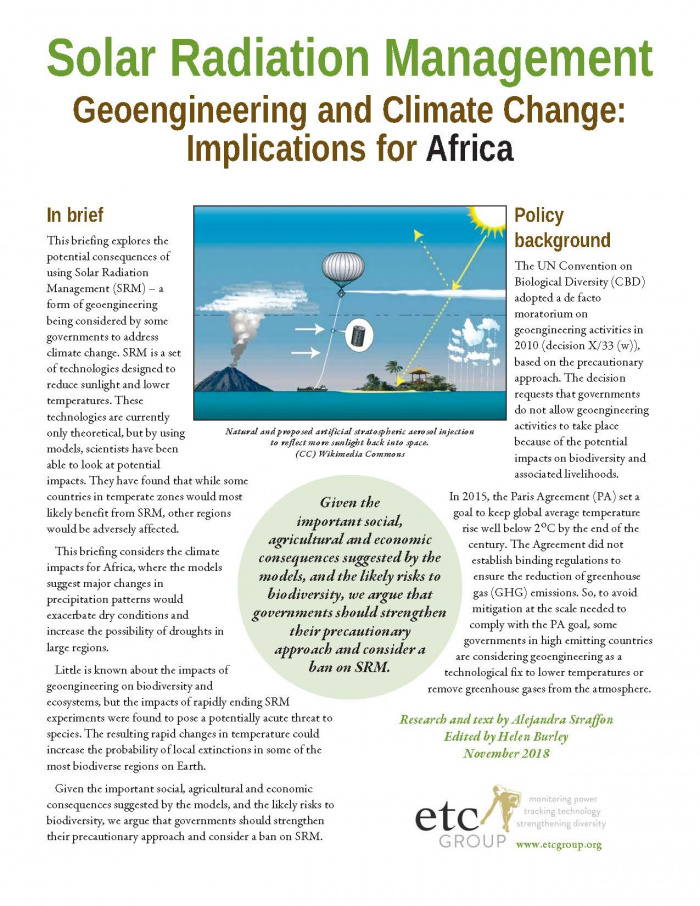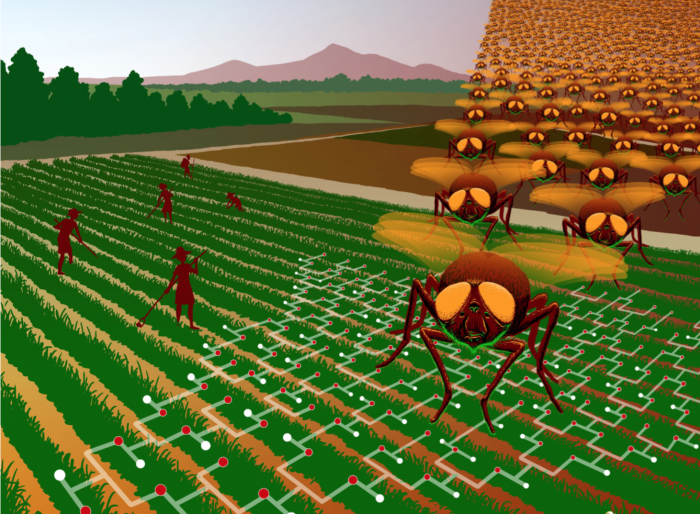Solar Radiation Management - Implications for Africa
Submitted by Veronica Villa on
This briefing explores the potential consequences of using Solar Radiation Management (SRM) – a form of geoengineering being considered by some governments to address climate change. SRM is a set of technologies designed to reduce sunlight and lower temperatures.










